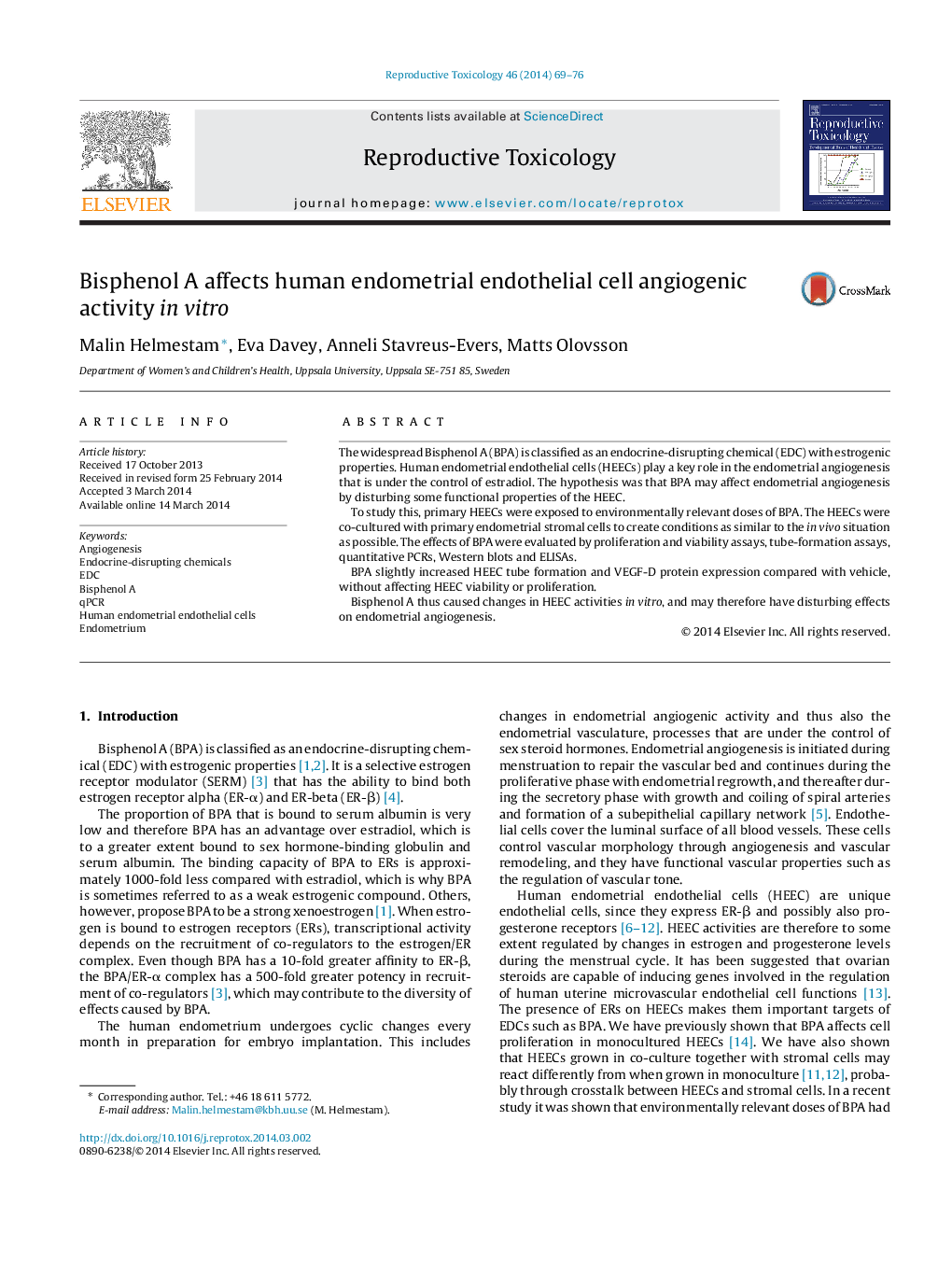| Article ID | Journal | Published Year | Pages | File Type |
|---|---|---|---|---|
| 5858889 | Reproductive Toxicology | 2014 | 8 Pages |
â¢Bisphenol A affects human endometrial endothelial cells (HEECs) grown in vitro.â¢HEEC tube formation was increased by Bisphenol A.â¢Bisphenol A increased HEEC VEGF-D protein.â¢G-protein coupled receptor 30 (GPR30) is expressed by HEEC.
The widespread Bisphenol A (BPA) is classified as an endocrine-disrupting chemical (EDC) with estrogenic properties. Human endometrial endothelial cells (HEECs) play a key role in the endometrial angiogenesis that is under the control of estradiol. The hypothesis was that BPA may affect endometrial angiogenesis by disturbing some functional properties of the HEEC.To study this, primary HEECs were exposed to environmentally relevant doses of BPA. The HEECs were co-cultured with primary endometrial stromal cells to create conditions as similar to the in vivo situation as possible. The effects of BPA were evaluated by proliferation and viability assays, tube-formation assays, quantitative PCRs, Western blots and ELISAs.BPA slightly increased HEEC tube formation and VEGF-D protein expression compared with vehicle, without affecting HEEC viability or proliferation.Bisphenol A thus caused changes in HEEC activities in vitro, and may therefore have disturbing effects on endometrial angiogenesis.
